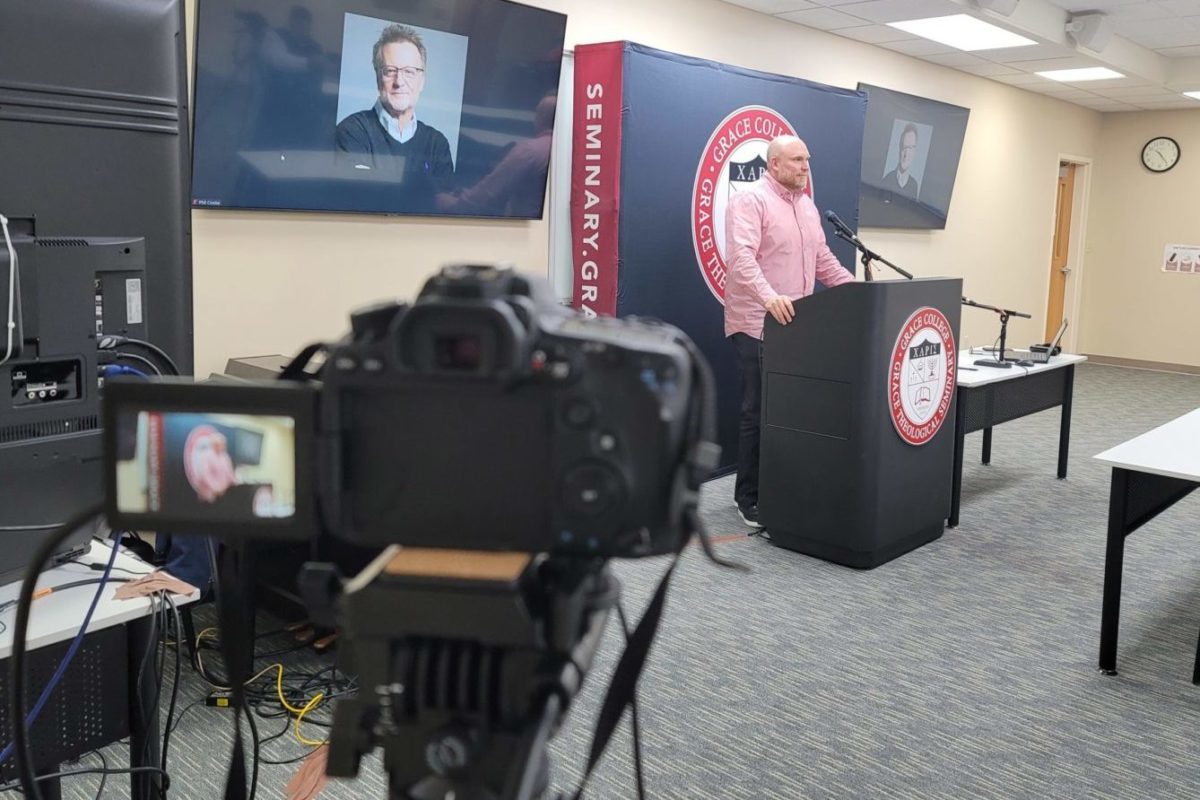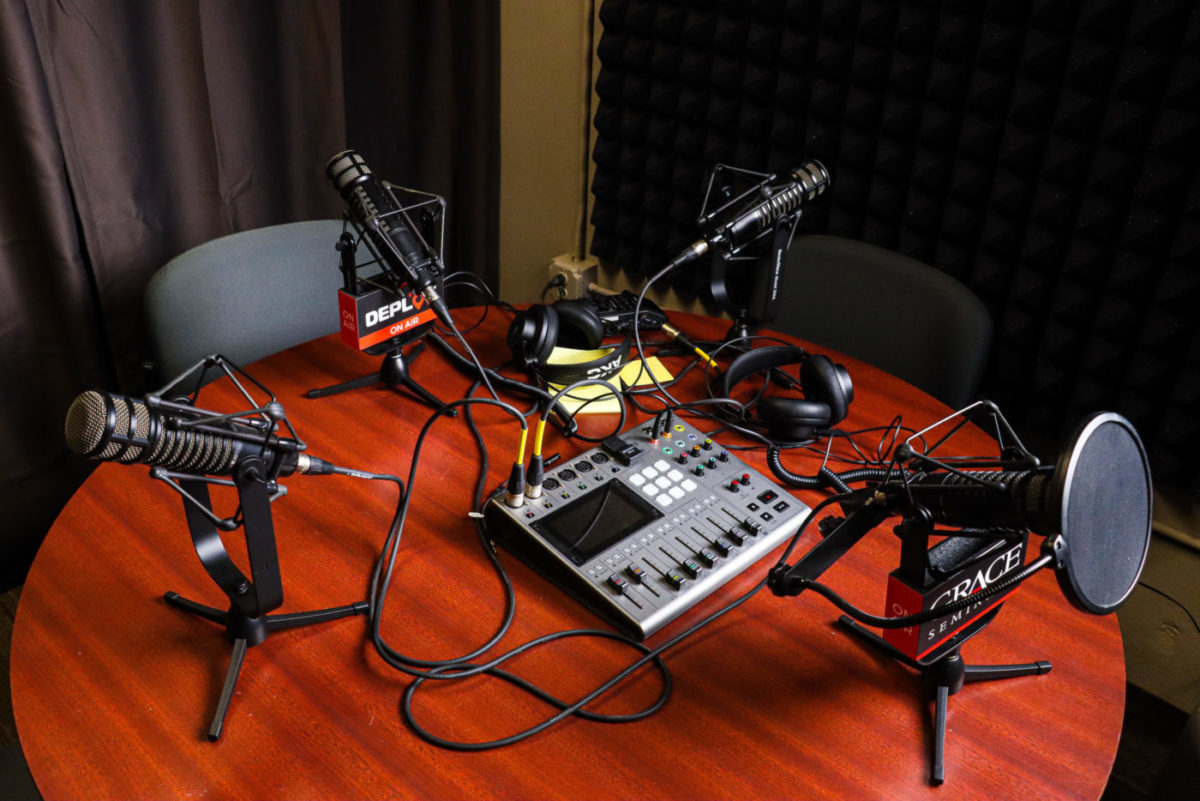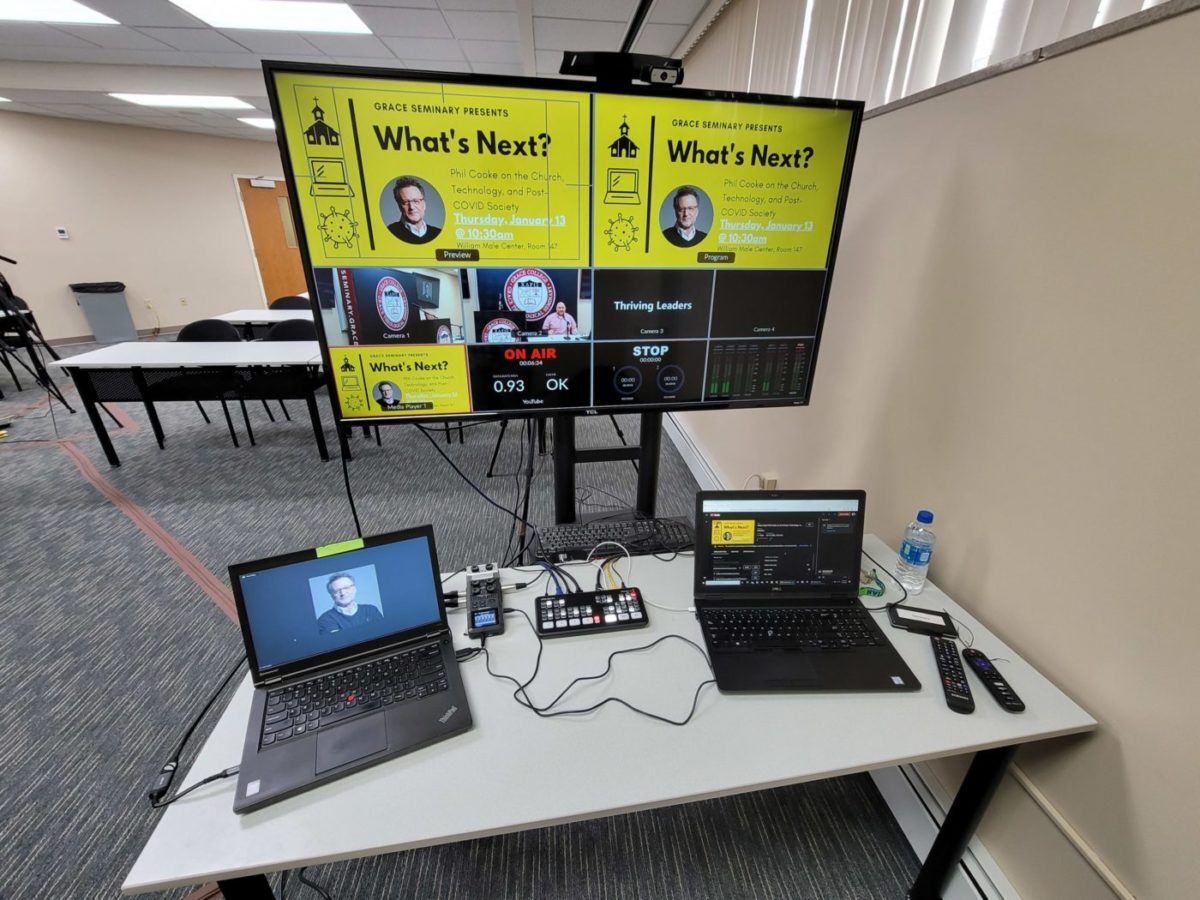March 4, 2022
Ministry in the Digital Age
Written By Grace Theological Seminary
Tagged With Preaching & Pastoring Ministry Online Programs

We are in the digital age. This isn’t news to any of us. No aspect of life has been left unaffected by major technological advancements since the formation of the internet. What our ancestors could never envision is now considered normal and, at times, perhaps even a necessary part of life.
Computers are tucked into our pockets in the shape of iPhones. FitBits and Apple Watches encourage healthy habits. We have smart technology that controls our light bulbs, thermostats, and enables many of the comforts of life. The pandemic only escalated this phenomenon, as each of us pivoted much of “normal” life and business to the online sphere.
Higher education is also affected by the digital age. Seminaries have increasingly utilized online delivery methods, opening doors for students to receive theological training without needing to uproot their lives and sacrifice their ministries. When COVID-19 emerged, seminaries that had not yet embraced the online sphere scrambled, and those institutions that had lagged behind felt the sting.
Dr. Freddy Cardoza, Dean of Grace Theological Seminary, explains, “online learning, once thought to be substandard education in either pedagogy or quality, moved from ‘pariah’ to ‘savior’ status during the pandemic. Last year, 40% of all Master of Divinity (MDiv) degrees that were awarded in ATS institutions were from online programs.”
Resources for Online Ministry Training
When Grace Theological Seminary applied for the In Trust resource grant in 2020, they did so with the aim of launching their first fully online degree, the Master of Arts in Ministry Studies (MAMS).
The In Trust grant became a catalyst for building a set of fully-equipped AV studios needed to launch the MAMS program and respond to the seismic shifts that were already taking place within higher education. The generosity of In Trust positioned Grace well when the pandemic hit, as their MAMS program became fully accredited by both the Association of Theological Schools (ATS) and the Higher Learning Commission (HLC) in the Fall of 2020.
The MAMS degree meets the needs of ministry in the digital age, currently offering concentrations in Christian Ministry, Counseling, Women’s Leadership, and most recently, a Technology specialization. In God’s kindness, Grace Seminary has seen dramatic growth within each of their Seminary programs. Overall enrollment has doubled and new deposits have nearly tripled in the course of three years, despite a worldwide pandemic and the highest economic inflation in the past 40 years.
Now that Grace is equipped with an online modality of education, they intend to build on this momentum. Grace is developing visually compelling, high-quality academic content that can be leveraged within four new concentrations of the MAMS degree: Management & Leadership, Church Renewal & Revitalization, Church Planting, and Spiritual Formation. In addition, Grace also plans to launch a residentially-tethered Online Master of Divinity program, leveraging the same AV resources provided by In Trust to create a dynamic new degree path.

Moving into the Digital Age Space
Though residential programs will always serve a vital and foundational purpose in theological education and at Grace, Dr. Cardoza explains, “online programs have become an indispensable resource in today’s seminary toolkit. You simply must move into the online space in order to remain relevant and to establish long-term sustainability.”
The In Trust matching grant provided Grace with the opportunity to tell its story to key stakeholders who share its vision. In doing so, the In Trust grant became catalytic, as it not only garnered the matching funds but an additional 10% beyond this – 110% more than the initial grant. Working to maximize this opportunity, Grace began purchasing the necessary tools to adapt to the needs of an institution in the digital age.
New lighting, proper microphones, high-quality cameras, and other audio-visual technology have revolutionized the quality of content that Grace is able to provide their students. Further, the confidence of In Trust confirmed the value and importance of studio space for the seminary across the institution. As a result, Grace Seminary now has three fully outfitted studio spaces– one for recording audio content and two for capturing video content.
The technological purchases enabled by the In Trust resource grant have strengthened Grace’s marketing efforts and supplied the equipment needed to delve more fully, broadly, and effectively into online pedagogy.

Equipping Leaders to Equip Others
Grace faculty received specialized training to enhance their understanding of the powerful intersection of technology, ministry, and higher education. The Grace team has continued to grow in its use of educational technology, ensuring that Grace is offering excellent academic programming and creating additional resources for ministry leaders.
Two members of the Grace faculty, Dr. Matthew Harmon and John Sloat, have launched a successful podcast, where they discuss a wide range of topics, including the Bible, theology, ministry, culture, and sports. This weekly podcast averages about 800 downloads each month, and they have listeners in over 40 countries around the world.
Dr. Harmon explains, “We envision the podcast as an extension of our ministry here at Grace, helping people to think biblically about various subjects and making them aware of helpful resources.”
Further, the resources provided by In Trust catapulted a vision that Grace shared with the Lilly Foundation, Inc., which has multiplied In Trust’s investment and contributed toward the same endeavor. “We believe this new and demonstrated capacity to produce compelling online learning content was a key part in our receiving not only one but two $1M Lilly Endowment Grants for 2021 and 2022,” explained Dr. Cardoza. Through the combined efforts of these grants, Grace has continued to innovate– establishing additional initiatives to respond to the needs of pastors, serving in ministry in the digital age.
The Center for Thriving Leaders
One such initiative is the Center for Thriving Leaders (The Center), which Grace has recently launched through the Charis Collective. The Center focuses on equipping church planters and small church revitalizers who often lack theological and practical ministry training. The Center will leverage the technology provided by In Trust to facilitate mentor-based cohorts, annual events, ongoing training and resources, and new academic programs geared toward pastors who are planting or revitalizing churches.
For example, The Center recently hosted an event called “What’s Next?” with Dr. Phil Cooke, a media producer, writer, speaker, and coach who works in the intersection of faith, media, and culture. The event was hosted live on Grace Seminary’s campus and streamed worldwide, providing an insightful perspective on the role of media in churches and seminaries in a post-COVID world.
Dr. Trent Lambert, Director of the Center, believes, “This program will contribute to the flourishing of local churches within the Charis Fellowship, expand the reach of the gospel in North America, and develop a new generation of pastors who will one day come alongside other pastors as ‘wise guides.’”

Leading into the Digital Age
The technology provided by the In Trust grant will soon be leveraged to create micro-credentialing courses, continuing to further Grace’s footprint. “These courses will open up the potential impact of the seminary beyond just pastors, offering discipleship throughout the church,” states John Sloat, Director of the School of Ministry Blended Program. Within these micro-courses, Grace faculty will record quality content to help train pastors as well as lay leaders in local churches who may not otherwise be able to pursue formal theological education.
These micro-credentialing courses will equip lay leaders within the church for the ministry which they have been entrusted. For some, these courses will train them for a formal role in the church, such as elder or small group leader training. Others may take courses for their own personal edification and discipleship training.
Brad Eckerley, a local church planter and advisor for Grace’s Blended program, anticipates the impact of this type of affordable and biblical training in his own church. “For many, especially in our rural, small-town communities where resources are limited, micro-credentialing may be the only feasible option for an individual to receive formal training to help them grow and increase their capacity to minister or transition into bi-vocational or full-time ministry.” The opportunities for impactful discipleship through micro-credentialing are expansive, and Grace is eager to find more ways to leverage this resource for Kingdom work.
Grace is particularly grateful to In Trust for supporting its vision through the resource grant. In Trust’s investment has enabled Grace to step into the technological sphere and harness it for expanding and equipping ministry opportunities. Grace’s three fully-outfitted studios will continue to be wellsprings of theological training for pastors, church planters, and lay leaders in local churches, leveraging the resources provided by In Trust to equip churches for Kingdom work throughout the world.
Are you pursuing a career in ministry? We’ve developed a technology concentration within our online ministry studies program. Connect with us today to learn more about our resources and how we are equipping pastors and ministry leaders for further ministry in the digital age.
Share
Tagged With Preaching & Pastoring Ministry Online Programs


